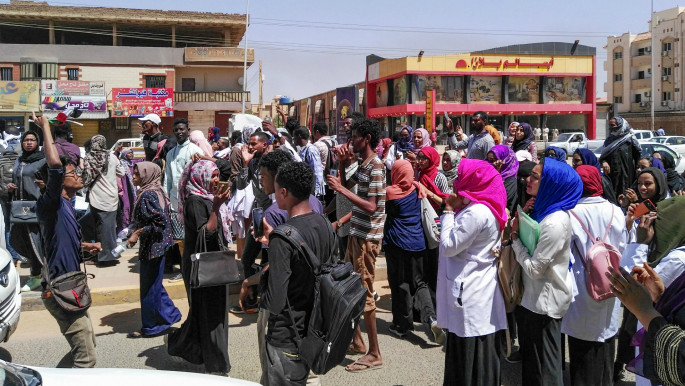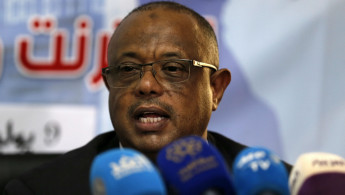The lawyer who is suing Sudan's internet providers after blackout
Mobile internet services were restored across Sudan earlier this week following a court order, weeks after the ruling generals imposed a blockade in the wake of a brutal crackdown on peaceful protesters.
Demonstrators were violently dispersed on June 3 by men in military fatigues, who stormed a weeks-long protest camp outside army headquarters in Khartoum where Sudanese had camped to demand that the generals step down.
Armed men, shooting and beating protesters in a pre-dawn raid, killed dozens of demonstrators and wounded hundreds.
Days later internet on mobile phones and fixed land connections was cut across Sudan, with users saying it was done to prevent further mobilisation of protesters.
Khartoum-based human rights lawyer Abdelazim al-Hassan filed a case against the blockade, later winning a case against telecom operator Zain to restore internet on his phone. He made headlines of being the only person in the entire country to have connection and was then encouraged to open up similar cases on behalf of the rest of the population.
"What has happened is an important step and we don’t want such a thing to happen again in the future," Abdelazim told The New Arab.
The Sudanese lawyer has so far won cases against two telecom operating companies MTN and Sudan on behalf of the Sudanese people, while a case against the third and the biggest telecom company Zain is yet to be out. He also disclosed an initiative by a number of journalists who will sue telecom companies, including Zain and MTN.
The human rights lawyer added that they are willing to sue the companies to pay a compensation to their customers so that "in the future they won't do such a thing."
"We will be asking for a respectful amount of money from these companies," he added.
People in Sudan had been offline for five weeks despite a deal signed earlier this week between the Transitional Military Council (TMC) and the protests leaders at the Forces of Freedom and Change (FFC) to share power.
The head of the military council Abdelfatah Burhan, the de facto leader of Sudan, told Saudi owned Al Arabyia that the internet will not be back until their "security arrangements are done," without further elaborating what these arrangements are.
Sudanese researcher and author, Abdulgadir Mohamed Abdulgadir, told The New Arab that authorities had to stop the internet as it is the most reliable source of information for many.
"The government controls majority of the media and censors a lot of content of newspapers, TV and radio. Even though the level of poverty and illiteracy in Sudan is very high, many still rely on the internet to educate themselves," Abdulgadir said.
 |
|
| Read also: Sudanese women detained and sexually harassed while protesting for change |
When the protests started in December last year, the former dictator leader Omar al-Bashir had banned the use of social media sites, before he was toppled and removed from power. But many began using Virtual Private Networks (VPN) to access the sites, communicate and organise themselves.
The Sudanese Professionals Association (SPA), the leading body of the protests, relied on social media to spread their messages to their thousands of followers on both Facebook and Twitter.
Once the blackout was lifted earlier this week, activists called for videos and testimonials of the massacre to be posted online. Other videos show Rapid Support Forces (RSF), an officialised paramilitary offshoot of the Janjaweed militias, beating and kicking protesters. The videos, collected under an Arabic hashtag, show protesters running away from shots being fired by paramilitary forces.
However, such an occurrence is not the first in Sudan. In 2013 when mass protests erupted and more than 300 people were killed in just a few days, there was an internet blackout for 22 hours. Authorities then restored the connection but also unblocked porn sites for the days of the protests in attempts to keep the youth distracted. It was a failed tactic, as Sudan's youngsters continue hitting the streets for a week to demand their rights.
The United Nations human rights experts have denounced this tactic of shutting down the internet in Sudan.
"In the past few weeks, we have continued to receive reports on internet blackout and blocking of social media platforms by the Transitional Military Council," the experts said, stating that it "stifles freedom of expression in the country."
Many companies such as Tirhal – the Sudanese equivalent to Uber – have stopped working as they are entirely dependant on the internet.
Zeinab Mohammed Salih is a freelance reporter based in Khartoum and a member of The Marie Colvin Journalists' Network.
Follow her on Twitter: @ZeinabMSalih



